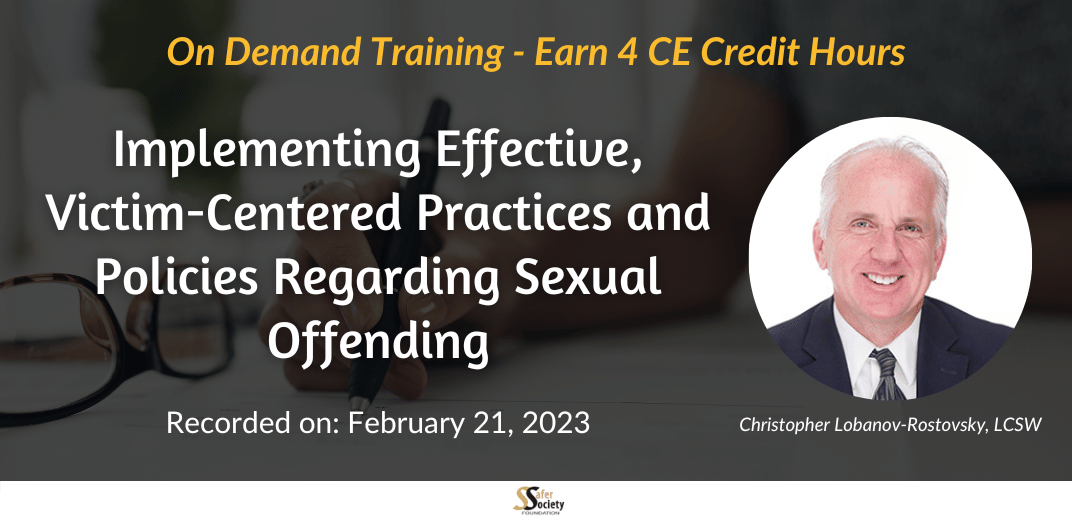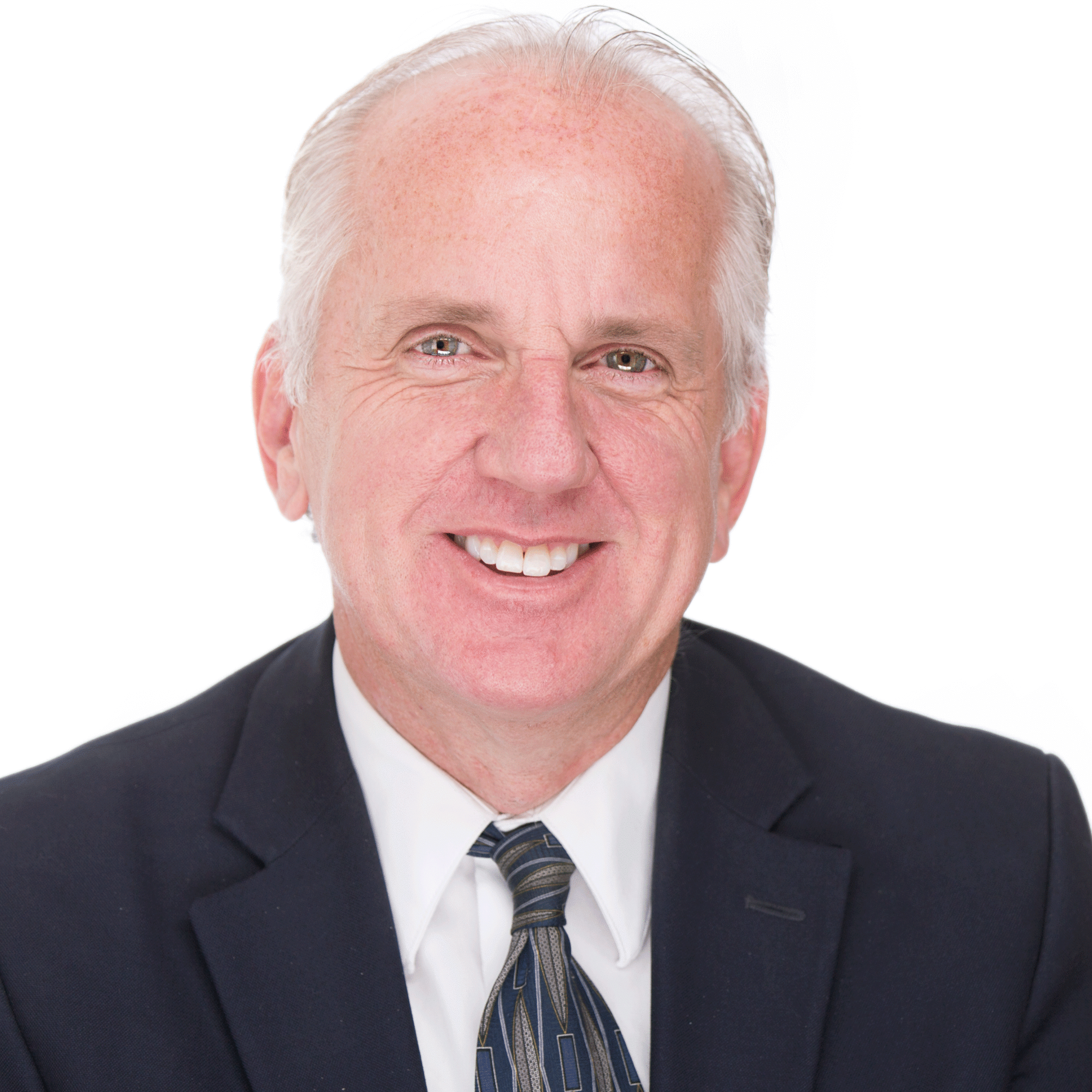
Implementing Effective, Victim-Centered Practices and Policies Regarding Sexual Offending
Already purchased an On Demand training?
Click here to access your Safer Society On-Demand Training Center account.
Though well-intentioned, policies and practices regarding sexual offending that are advocated by lawmakers and their constituents all too often result in efforts that are counterproductive for the long-term safety of the community. Just as problematically, they fail to adequately take into account the needs of the victims of abuse and do not adequately promote actions that can help individuals who have abused avoid re-offending.
This workshop first briefly reviews the history and origins of sexual offender management and treatment. It next reconsiders current interventions through the lens of holistic harm prevention, including community safety, victim empowerment and healing, and support for offender rehabilitation. The workshop further considers the potentially harmful effects of poorly implemented practices and policies.
Participants have the opportunity to:
- Examine their own perspectives on sexual offender management and treatment
- Evaluate controversial interventions from a harm-prevention standpoint, including:
- Sexual offender registration and notification
- Polygraph examinations
- Civil commitment
- Person-first Language
During the training, presenter Chris Lobanov-Rostovsky discusses:
- Historical context of sex offender management
- How sex offender management policy and practice is enacted
- What works regarding sexual offending
- Limitations by not considering protective factors and victim impact
- Harm prevention approach
- Intersection of offenders, victims, and community
- Victim centeredness
- Recommendations
1) Explain the reasons why certain sexual offender management practices and policies have become popular with community members and lawmakers.
2) Describe the ways in which current sex offender management practices may not be victim centered or may not support victim interests.
3) Analyze the unintended, and intended, impacts of sexual offender management and treatment practices that may undermine sexual offender rehabilitation.
4) Consider sexual offender management policy and practice with regard to the interests of offender rehabilitation, victim centeredness, and community safety.
5) Explain the benefits and costs of current sexual offender management policy and practice from the perspectives of the community and policymakers, those who offend, and those who are victimized.
6) Describe controversial harm prevention-based sexual offender management policies and practices and identify recommendations for practice and policy change.
Audience
This training is primarily for professionals involved in the management and treatment of individuals who have sexually offended. This includes treatment providers, supervision officers, caseworkers, and law enforcement personnel.
Content Level
Disclosure
Continuing Education Approval
American Psychological Association (APA)
Safer Society Foundation, Inc. is approved by the American Psychological Association (APA) to sponsor continuing education for psychologists. Safer Society Foundation, Inc. maintains responsibility for this program and its content.
Who's Presenting

Christopher Lobanov-Rostovsky
Christopher Lobanov-Rostovsky has worked as a Native American tribal training and technical assistance associate for the National Criminal Justice Training Center (NCJTC) at Fox Valley Technical College since 2009. This work has included training tribal professionals on sex offender management and treatment and substance use interventions and providing ongoing tribal technical assistance regarding program development and evaluation. Mr. Lobanov-Rostovsky has also worked for the Division of Criminal Justice within the Colorado Department of Public Safety as the Program Manager for the Colorado Sex Offender Management Board since 2006, where he is responsible for developing sex offense treatment and supervision standards, approving treatment providers, and providing legislative and policy input. Mr. Lobanov-Rostovsky holds a Master’s Degree in Social Work from the University of Michigan and has been a Licensed Clinical Social Worker (LCSW) since 1990. Prior to his current position, Mr. Lobanov-Rostovsky worked as an approved treatment provider and evaluator for both adult and juvenile populations.
